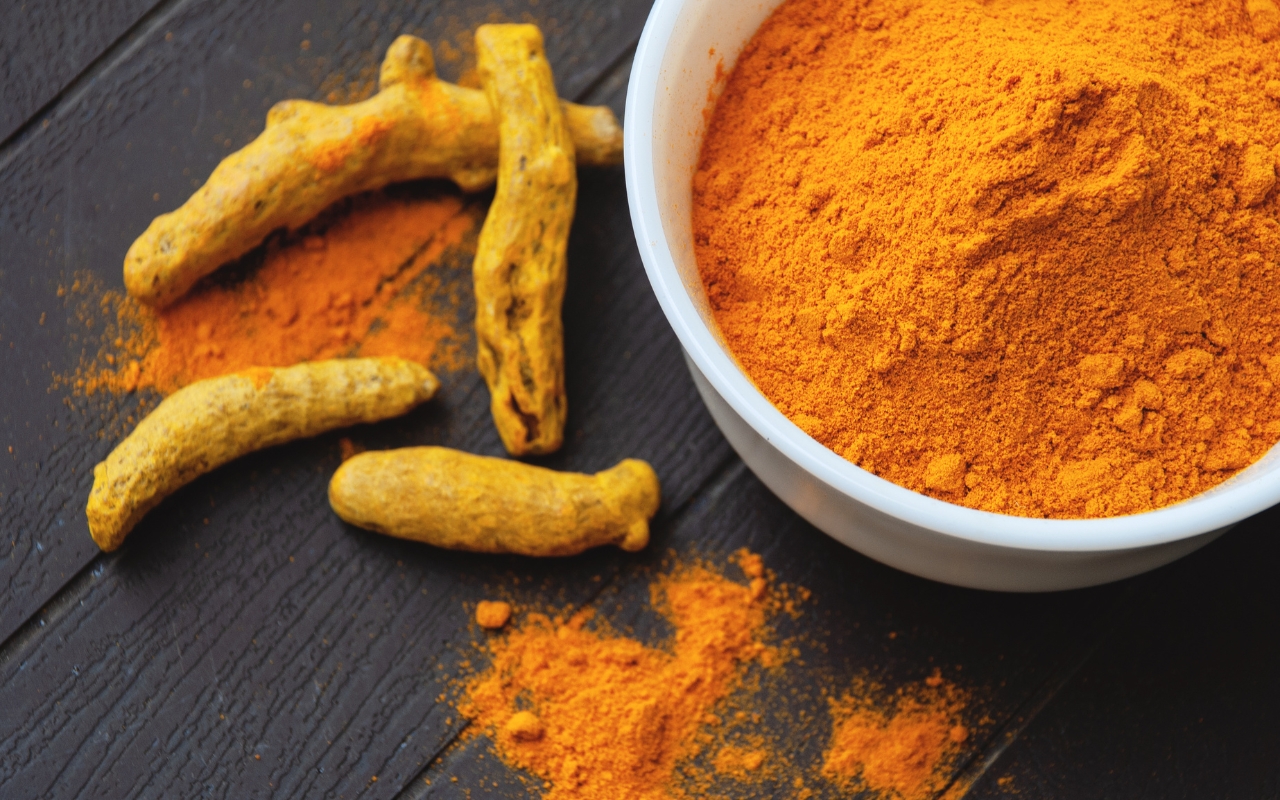Turmeric has been prized for its medicinal properties and culinary uses for centuries. This golden spice, often found in Indian cuisine, has a vibrant yellow hue that adds color to dishes and packs a powerful punch for human health. In this extensive article, we’ll explore the many benefits of turmeric, how it can be used, and considerations for its incorporation into your daily routine.
The Origins and Historical Use of Turmeric
Turmeric, scientifically known as Curcuma longa, is a perennial plant from the ginger family. It thrives in the tropical climates of South Asia, with India being the largest producer. Historically, turmeric has been utilized in Ayurvedic and Chinese medicine to treat various conditions, including digestive problems and skin diseases.
In traditional Ayurvedic medicine, turmeric is considered a warming spice. It is used to balance the doshas—Vata, Pitta, and Kapha—and to treat ailments such as respiratory issues, joint pain, and gastrointestinal discomfort. Similarly, Chinese medicine recognized turmeric’s ability to invigorate blood, alleviate pain, and reduce the effects of inflammation.
Curcumin: The Powerhouse Compound
The true star of turmeric is curcumin, its primary active ingredient. Curcumin is renowned for its anti-inflammatory and antioxidant properties, which have led modern science to investigate turmeric’s potential health benefits. Although turmeric contains only about 2-9% curcumin, even this small percentage holds significant therapeutic promise.
Anti-Inflammatory Benefits
Chronic inflammation is implicated in numerous health issues, including heart disease, cancer, metabolic syndrome, Alzheimer’s disease, and various degenerative conditions. Curcumin is a potent anti-inflammatory agent that can inhibit molecules that are critical to inflammation. It blocks NF-kB, a molecule that travels into the nuclei of cells and activates inflammation-related genes.
Antioxidant Properties
Oxidative damage is believed to be a mechanism behind aging and many diseases. It occurs when free radicals, which are highly reactive molecules with unpaired electrons, interact with important organic substances such as fatty acids, proteins, or DNA. Curcumin's antioxidant properties can neutralize these free radicals, reducing oxidative stress and potentially lowering the risk of chronic diseases.
Turmeric and Rheumatoid Arthritis
One area where turmeric shows promise is in the treatment of rheumatoid arthritis (RA). RA is an autoimmune condition characterized by chronic inflammation of the joints, leading to pain and stiffness. Several studies indicate that curcumin can help alleviate the symptoms associated with RA. For instance, a 2017 study found that a highly bioavailable formulation of curcumin significantly improved symptoms and diagnostic indicators in RA patients. Read more about this study here.
Curcumin's anti-inflammatory effects can aid patients suffering from RA by reducing joint swelling and pain, thereby improving overall joint function. However, it's important to note that while turmeric may offer some relief, it should be used as a complementary therapy alongside conventional treatments.
Digestive Health and Indigestion Relief
Turmeric has long been utilized to support digestive health. It stimulates the gallbladder to produce bile, which may help improve digestion and reduce symptoms of bloating and gas. The German Commission E, a regulatory agency that evaluates the safety and efficacy of herbs, has acknowledged turmeric’s potential benefit in treating indigestion or dyspepsia.
Liver Function and Detoxification
Turmeric also supports liver health. Its antioxidant properties are believed to protect the liver from damage by toxins, reducing the risk of liver diseases. Curcumin’s ability to stimulate bile production can help in the natural detoxification process, further supporting liver function and overall digestive health.
Cancer Prevention and Treatment
Studies suggest that curcumin might play a role in cancer prevention and treatment. Curcumin has been shown to affect cancer growth, development, and spread at the molecular level. It can contribute to the death of cancerous cells and reduce angiogenesis (the growth of new blood vessels in tumors) and metastasis (the spread of cancer).
In research involving colorectal cancer, curcumin supplementation was found to reduce the number of lesions in the colon, thereby lowering the risk of cancer. However, it's crucial to approach these findings with cautious optimism, as most studies have been conducted on animals or in vitro. More human clinical trials are needed to verify turmeric’s efficacy in cancer treatment.
Cardiovascular Health
Heart disease is the leading cause of death worldwide, and it is an area where turmeric may offer significant benefits. Curcumin improves the endothelium's function and the blood vessels' lining. Endothelial dysfunction is a significant driver of heart disease and involves an inability to regulate blood pressure, blood clotting, and other factors.
A study involving postmenopausal women found that curcumin was as effective as exercise in improving endothelial function. Additionally, curcumin’s anti-inflammatory and antioxidant properties help reduce the risk of heart disease.
Neuroprotective Effects
Curcumin's ability to cross the blood-brain barrier makes it a promising candidate for treating various neurological disorders. Neuroinflammation and oxidative damage are believed to contribute to the pathogenesis of neurodegenerative diseases such as Alzheimer's. Curcumin may help protect against cognitive decline by reducing inflammation and oxidative stress.
Alzheimer’s Disease
Alzheimer’s is characterized by the buildup of amyloid plaques in the brain. Studies show that curcumin can help clear these plaques. Furthermore, inflammation and oxidative damage are strongly linked to Alzheimer’s, and curcumin’s anti-inflammatory and antioxidant effects may help mitigate these conditions.
How to Incorporate Turmeric into Your Diet
Turmeric's versatility means it can be incorporated into your diet in numerous ways. Various options are available, whether used as a spice in cooking, taken as a supplement, or consumed as a tea.
As a Spice
Turmeric is a staple in Indian cuisine. It is used to flavor and color curries, mustards, butter, and cheeses. It can also be added to soups, stews, smoothies, and even salads. For those looking to maximize the therapeutic benefits, combining turmeric with black pepper is beneficial, as piperine, an active compound in black pepper, enhances curcumin absorption by up to 2,000%.
Turmeric Tea
Turmeric tea is another popular method of consumption. To make your own, boil two cups of water with a teaspoon of turmeric powder and half a teaspoon of black pepper. Simmer for 10-15 minutes, and add honey, lemon, or milk to taste. This soothing tea harnesses turmeric's anti-inflammatory benefits and can be a comforting drink for those suffering from joint pain or digestive issues. Learn more about turmeric tea and other recipes here.
Supplements
Turmeric or curcumin supplements are available for those who find it challenging to integrate turmeric into their diet. These come in various forms, including capsules, powders, and extracts. It’s advisable to choose supplements containing piperine to increase curcumin absorption.
Side Effects and Considerations
Despite its numerous benefits, turmeric is not without potential side effects. High doses or prolonged use of turmeric supplements can lead to gastrointestinal issues such as nausea, diarrhea, or stomach upset. In some cases, it may also lead to more severe liver damage.
Blood Thinning
Curcumin has blood-thinning properties, which can be beneficial for reducing the risk of heart attacks and strokes but may pose risks for those on anticoagulant medication. It’s crucial for individuals taking blood-thinning drugs like warfarin or those requiring surgery to consult a healthcare provider before adding turmeric supplements to their regimen. Read more about turmeric’s interactions with medications here.
Pregnancy and Breastfeeding
Pregnant or breastfeeding women should also exercise caution with turmeric. While small amounts used as a spice are generally considered safe, high doses or supplements are not recommended as they may stimulate contractions or increase bleeding risk.
Diabetes and Kidney Stones
Curcumin can lower blood sugar levels, which might enhance the effects of diabetic medications and could potentially lead to hypoglycemia. Additionally, turmeric is high in oxalates, which can increase the risk of kidney stones in susceptible individuals. Those with kidney issues or diabetes should consult their healthcare provider before using turmeric supplements.
Conclusion
Turmeric is undoubtedly a remarkable spice, and its active ingredient, curcumin, is attributed to a multitude of health benefits. From reducing inflammation and fighting free radicals to supporting joint health and potentially lowering the risk of chronic diseases, turmeric’s therapeutic properties are well-documented and supported by scientific research. However, as with any supplement, it’s crucial to use it responsibly and consult with healthcare professionals, especially if there are pre-existing health conditions or concurrent medication use.
Incorporating turmeric into your diet through cooking, tea, or supplements can be a simple yet effective way to harness its health benefits. As research continues to unveil the full extent of turmeric’s potential, it remains a valuable addition to culinary and medicinal practices. For those considering turmeric as part of their health regimen, the journey to improved well-being might be just a golden spice away.










